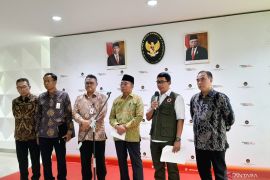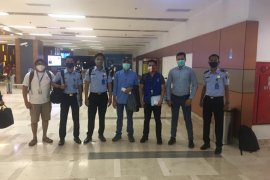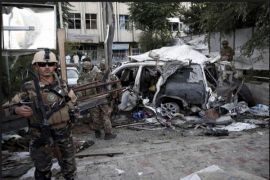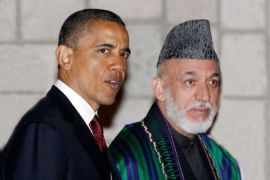The current events in Afghanistan serve as a lesson in which the State Government needs the support of its people to jointly build a country.Jakarta (ANTARA) - The international media lately reported the success of the Taliban militia group in taking over Afghanistan that includes the capital city of Kabul. President Ashraf Ghani, the highest leader of the country, also fled to Tajikistan after the Taliban entered the city of Kabul. The Taliban took control of Afghanistan not long after the United States started to withdraw its troops. Even this opportunity was not wasted by the Taliban militia that has been fighting against the US for two decades. However, the speed with which the Taliban took control of Afghanistan becomes a question that needs to be analyzed regarding the map of Afghanistan's power regardless of the US influence so far. These include:
1. Afghanistan's intelligence and military are not ready after the departure of the US troops from their country. The high rate of corruption in the military and government weakens the country's war preparedness. Coupled with the dependence on the US military and NATO that had been running for up to 20 years, it is something that needs to be observed as to why the official military combat spirit of a country is inferior to militia groups, such as the Taliban.
2. The US exit from Afghanistan was not followed by careful consideration and data regarding the latest Taliban movement, especially where the Taliban has strong tribal power in the ethnic majority there, specifically Pashtun. In addition, the strength of the Taliban playing at the rural level and the ability to recruit young people are its strong points. The US did not pay close attention to it before completely withdrawing troops from Afghanistan.
3. The Afghan government does not have strong support of its people. This can be seen when the Taliban entered Kabul City without any resistance from the official government in power. The lack of public willingness to fight to defend and the official government’s tendency to run away rather than fight is something that needs to be seen in this context. The legitimate government has no support even from its own people. In addition, from the number of Afghan voters supposed to be 9.7 million during the presidential election in 2019, only 1.6 million voted, with 50.6 percent of the votes for Ashraf Ghani.
4. Weak law enforcement by the Afghan government. Until before the entry of the Taliban to control Kabul, the official government of Afghanistan could not enforce its laws on its territory. This can be seen since despite the Taliban being attacked by the US for 20 years, it can still exist. Sources of funds from the sale of opium, extortion, and kidnapping for ransom have been playing with the Taliban. In addition, the Taliban is playing in the black market to sell the mining products they control. Finally, there are indications of loyal overseas donors to fund this group.
These factors should be borne in mind from the collapse of the official government of Afghanistan by the Taliban Militia group.
Related news: Indonesia optimistic of peace, stability in Afghanistan: Retno Marsudi
America's Exit and China's Entry into Afghanistan
After the Taliban took control of Afghanistan, China has made a quick move to conduct political lobbying with the Taliban related to regional geopolitics. This is, of course, done by China since Afghanistan is a strategic country that is expected to be able to succeed in its Belt Road Initiative (BRI) Program wherein Afghanistan is planned to be involved in the China-Pakistan Economic Corridor (CPEC). In addition, pertaining to economic factors, China also hopes to be able to invest in profitable strategic areas, such as mining, which have not been exploited to their full potential. China's recognition of the Taliban, which is a de- facto representation of the Afghan government at this time, makes sense to safeguard its national interests in the economic field.
In addition, pertaining to the security factor, the Chinese government's approach to the Taliban is also based on the keenness for support from the Uighur problem in western China. Support has been extended from the Taliban, which is currently representing Afghanistan for a while after its control of Kabul. It is a strategic step that should be taken, especially to counter narratives against the western media that blames China for the allegations of human rights violations that exist there.
Related news: Air Force plane brings dozens of Indonesians home from Afghanistan
The success of the Taliban and the possible revival of separatist and terrorist group cells
The success of the Taliban militia to seize Kabul is feared to be a record of the struggle of other insurgent militia that have been continuing so far. It is feared that separatist militias and terrorists spread throughout the world and having links with the Taliban might emulate its actions. A special note should be made of the current incident in Afghanistan and early preventive measures must be taken to prevent recurrence in future.
In Southeast Asia, militia groups still exist and need to be monitored after the events that took place in Afghanistan. The cells that have been hiding for a long time can come back to life on seeing Taliban’s success in Afghanistan at the moment. At least some groups currently should be watched out for in the Southeast Asian region, such as the Abu Sayyaf, Jamaah Islamiyah (JI), and Jamaah Ansharut Daulah (JAD).
The current events in Afghanistan serve as a lesson in which the State Government needs the support of its people to jointly build a country. The trust of the people and the government must be in line with the mission of establishing the country.
*Syarifurohmat Pratama Santoso, S.Ip. is an officer of the Indonesian Navy
The views and opinions expressed on this page are those of the author and do not necessarily reflect the official policy or position of the ANTARA News Agency.
Related news: AF pilot shares challenges faced in Afghanistan evacuation mission
Related news: Expert urges Indonesians to not become divided over Afghan conflict
Copyright © ANTARA 2021






